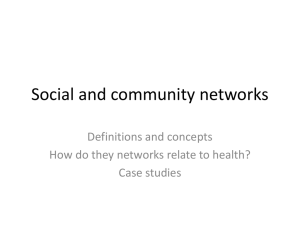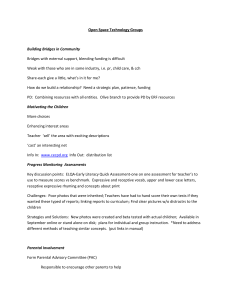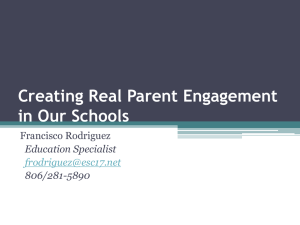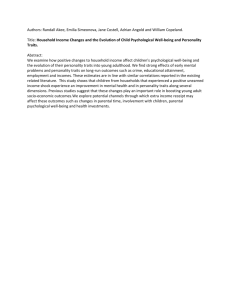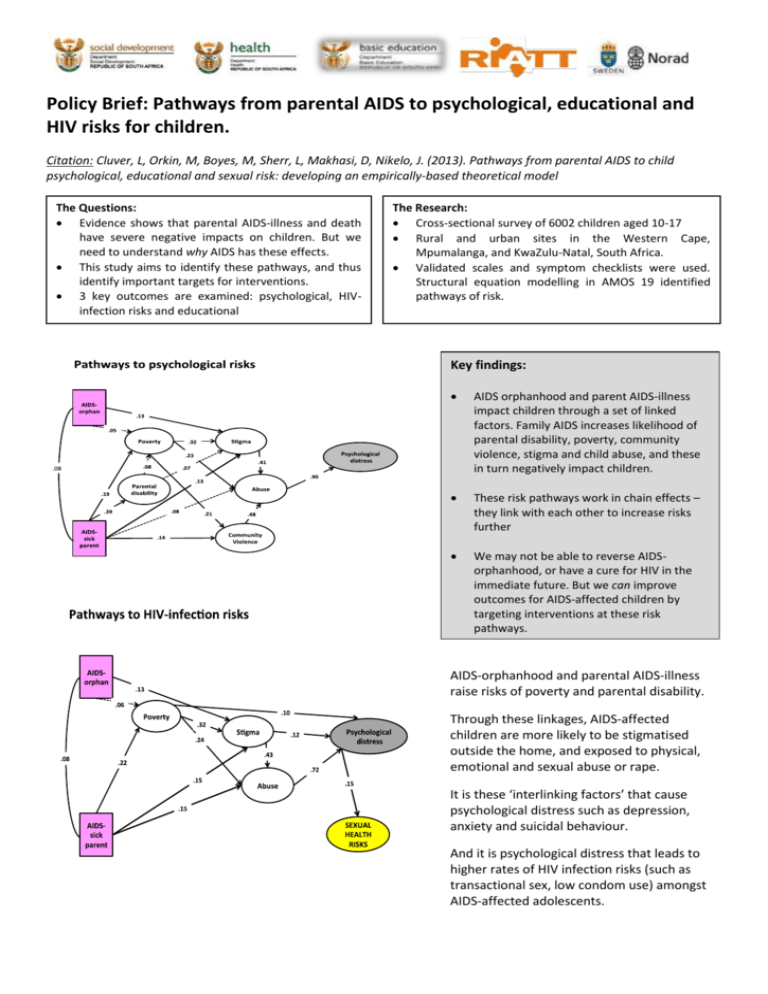
Policy Brief: Pathways from parental AIDS to psychological, educational and
HIV risks for children.
Citation: Cluver, L, Orkin, M, Boyes, M, Sherr, L, Makhasi, D, Nikelo, J. (2013). Pathways from parental AIDS to child
psychological, educational and sexual risk: developing an empirically-based theoretical model
The Questions:
Evidence shows that parental AIDS-illness and death
have severe negative impacts on children. But we
need to understand why AIDS has these effects.
This study aims to identify these pathways, and thus
identify important targets for interventions.
3 key outcomes are examined: psychological, HIVinfection risks and educational
The Research:
Cross-sectional survey of 6002 children aged 10-17
Rural and urban sites in the Western Cape,
Mpumalanga, and KwaZulu-Natal, South Africa.
Validated scales and symptom checklists were used.
Structural equation modelling in AMOS 19 identified
pathways of risk.
Key findings:
AIDS orphanhood and parent AIDS-illness
impact children through a set of linked
factors. Family AIDS increases likelihood of
parental disability, poverty, community
violence, stigma and child abuse, and these
in turn negatively impact children.
These risk pathways work in chain effects –
they link with each other to increase risks
further
We may not be able to reverse AIDSorphanhood, or have a cure for HIV in the
immediate future. But we can improve
outcomes for AIDS-affected children by
targeting interventions at these risk
pathways.
AIDS-orphanhood and parental AIDS-illness
raise risks of poverty and parental disability.
Through these linkages, AIDS-affected
children are more likely to be stigmatised
outside the home, and exposed to physical,
emotional and sexual abuse or rape.
It is these ‘interlinking factors’ that cause
psychological distress such as depression,
anxiety and suicidal behaviour.
And it is psychological distress that leads to
higher rates of HIV infection risks (such as
transactional sex, low condom use) amongst
AIDS-affected adolescents.
Education risks are also higher amongst
AIDS-affected children. Parental AIDS
raises levels of poverty, which leads
directly to non-enrolment through
inability to afford fees or uniforms.
Children in AIDS-affected families also
have more exposure to community
violence (such as being robbed, seeing
someone shot) – this is also linked to
education risks such as non-attendance.
Parental AIDS also raises education risks
such as grade failure through
psychological distress.
Combined pathways of risk
AIDSorphan
Educa on
risks
.13
.05
Poverty
.18
S gma
.32
Psychological
distress
.23
.41
.08
.08
.19
.07
.90
.13
Parental
disability
.14
Abuse
.15
.08
.39
AIDSsick
parent
.14
.21
.48
Community
Violence
SEXUAL
HEALTH
RISKS
Psychological, educational and HIVinfection risks are also linked with each
other, causing multiple risks for AIDSaffected children.
In all models, living with an AIDS-unwell
parent had stronger links to negative
outcomes than AIDS-orphanhood, but
both predicted negative child outcomes.
Girls and older children were worst
affected overall.
Implications for programming:
Targeting programmes at these intervening factors such as hunger and abuse can interrupt pathways
of risk for AIDS-affected children
Many of these factors have good evidence of effective interventions, for example cash transfers to
reduce poverty, and parenting support programmes to reduce abuse.
This research is a collaboration between the South African government, the National Action Committee for Children Affected by
AIDS (NACCA), Oxford University, & the Universities of Oxford, KwaZulu-Natal, Cape Town and Witwatersrand.
This research was generously funded by:


